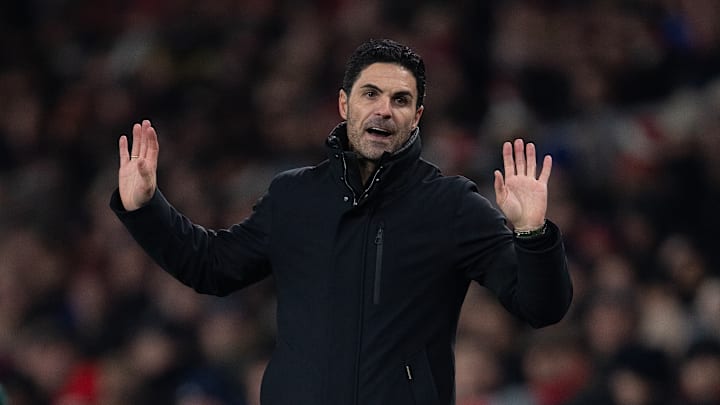The boss’s vivid imagination was on display again in midweek when he shared this creative, opposition-based diagnosis as the main reason for our lack of attacking fluency.
But while teams often do resort to a low block against us, there are internal factors that might explain these goal-scoring woes.
Beginning with the obvious, the Gunners have had poor injury luck this season (just like everyone else) and suffered by not getting to play their best frontline options. Each first-choice attacker (Bukayo Saka, Gabriel Jesus and Gabriel Martinelli) has needed treatment at some point, while Wednesday marked the first time our strongest offensive mix (the aforementioned trio, plus Kai Havertz, Declan Rice and Martin Odegaard) all started together - with that sextet proceeding to batter RC Lens 6-0.
However, the root of our ‘problem’ arguably lies at Arteta’s tactical doorstep, and forms part of a deliberate ploy rather than any oppositional constraints.

As reported by The Athletic, Arsenal are playing at a slower tempo in 2023/24 compared to past campaigns and now commit fewer men ahead of the ball when in possession: choices which lead to a less direct attack and lower levels of chance creation, but also starve our opponents of the ball (thereby reducing the threat of conceding) and make us better able to snuff out transitions.
The self-inflicted nature of this ‘issue’ is further highlighted by Manchester City who, despite facing similar low-block propositions, have still thrived as an attacking unit this term- scoring a league-best 33 goals and ranking second for ‘Big Chances Created’ (also 33).
Therefore, while extra-cautious rivals, wide progression (rather than central) and frequent rotation do not help the Arsenal goal-scoring cause, it seems our conservatism owes equally to managerial orders as Arteta tries to keep everyone fresh and more equipped for the football marathon ahead.
Top spot in Europe and the Premier League means his plan could hardly be working any better right now, and maybe the return of key first-team names will naturally bolster our offensive data over the coming weeks.
But such tight wins can easily swing the other way and so, if that all-important fluency does not reappear soon, it is likely that we will struggle to keep up a title-winning pace.
Although defences win titles, a better attack is needed to ensure Arsenal continue to win games and Arteta must find the right balance.
